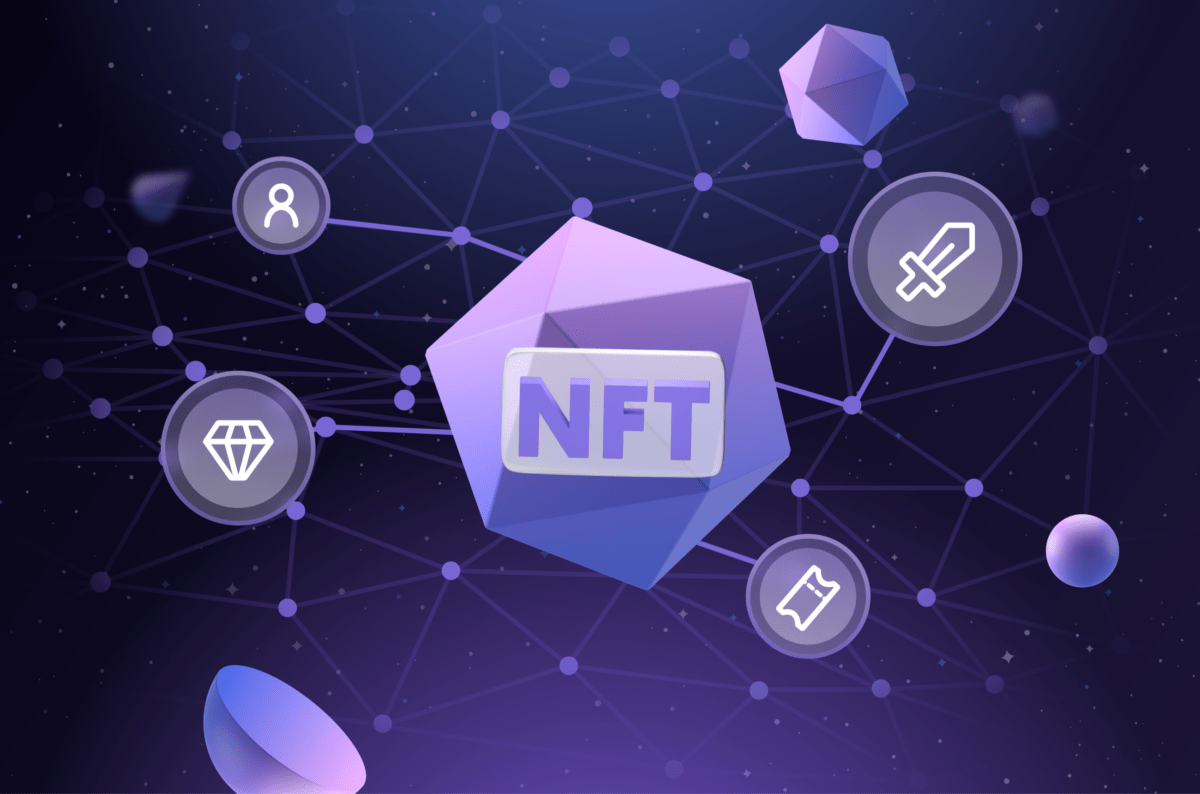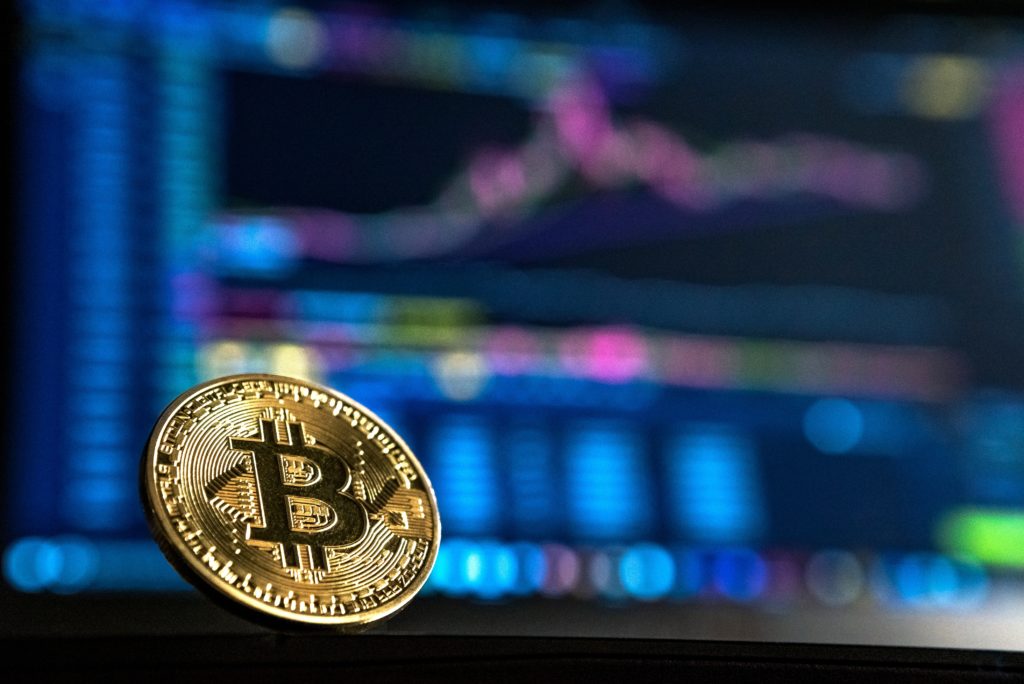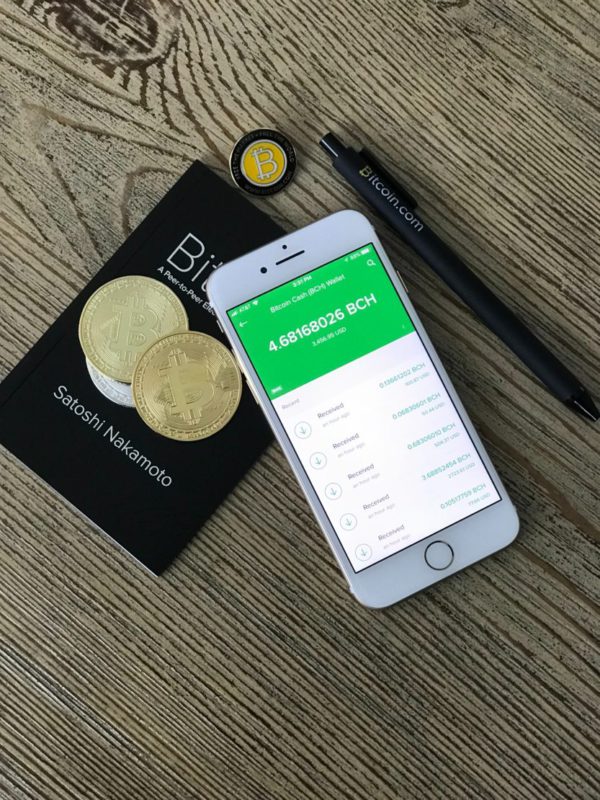Why Using Bitcoin For NFT Investment Is A Smart Option In 2024?
Bitcoin is a digital asset that can be transferred electronically between users in a secure and transparent manner. The key innovation behind Bitcoin is its blockchain, a distributed ledger that records all transactions made with Bitcoin. Each transaction is verified and added to the blockchain through a process called mining, where network participants compete to solve complex mathematical puzzles. This process ensures the integrity and immutability of the blockchain, making it resistant to tampering or fraud.
Bitcoin’s scarcity is another critical aspect of its design. With a predetermined supply capped at 21 million coins, it is deflationary by nature, meaning its value may increase over time as demand outpaces supply. This scarcity is maintained through a halving mechanism, where the rate at which new Bitcoins are created is halved approximately every four years.
As a decentralized currency, It offers several advantages over traditional fiat currencies. It enables borderless transactions, allowing users to send and receive payments anywhere in the world without the need for intermediaries or exchange rates. Additionally, Bitcoin transactions are pseudonymous, providing a level of privacy for users while still maintaining transparency on the blockchain.
It has garnered significant attention from investors, traders, and technologists alike, sparking debates about its potential as a store of value, medium of exchange, and hedge against inflation. While its price volatility and regulatory uncertainties pose risks, many proponents view Bitcoin as a disruptive force that could fundamentally reshape the global financial system and empower individuals with greater financial sovereignty. As Bitcoin continues to evolve and gain mainstream acceptance, its impact on the economy and society is likely to grow exponentially.
Also, read- Bitcoin Dogs ICO Raises $5.7 Million, Pioneering BRC-20 and Bitcoin Gaming
NFT Investment using Bitcoin

Investing in non-fungible tokens (NFTs) using Bitcoin can be a smart option for several reasons. Firstly, Bitcoin serves as a widely accepted and liquid asset in the cryptocurrency market. By using it to invest in NFTs, investors can leverage the liquidity and stability of Bitcoin to access the rapidly growing NFT market without the need to convert their holdings into fiat currency.
Secondly, its status as the leading cryptocurrency provides a secure and trusted means of transaction for acquiring NFTs. The decentralized nature of Bitcoin ensures that transactions are immutable and resistant to censorship, reducing the risk of fraud or manipulation when purchasing NFTs.
Additionally, using it to invest in NFTs offers diversification benefits within the cryptocurrency space. While Bitcoin itself is often considered a store of value or digital gold, investing in NFTs allows investors to diversify their crypto holdings into unique digital assets such as digital art, collectibles, virtual real estate, and more.
Furthermore, the interoperability of it with various blockchain networks and NFT platforms enables seamless access to a wide range of NFT projects and ecosystems. Many NFT marketplaces accept Bitcoin as a form of payment, providing investors with flexibility and accessibility in acquiring NFTs across different platforms.
Moreover, investing in NFTs using it allows investors to capitalize on the potential synergies between these two emerging asset classes. As NFTs continue to gain mainstream adoption and utility across industries like gaming, entertainment, art, and finance, the demand for may also increase, driving further value appreciation for both assets.
However, it’s important for investors to conduct thorough research and due diligence before investing in NFTs using it, as both markets can be volatile and speculative. Understanding the underlying fundamentals of NFT projects, evaluating the scarcity and uniqueness of NFT assets, and assessing the long-term viability of the NFT market are crucial factors to consider when making investment decisions in this space.
Overall, using it to invest in NFTs can be a strategic and forward-thinking approach for investors looking to diversify their crypto portfolios, capitalize on emerging trends in the digital economy, and potentially generate significant returns in the long run.
We are giving away 0.00021 sBTC from @babylon_chain to our followers. To participate, just be a follower of @everstake_pool and:
— Everstake (@everstake_pool) March 1, 2024
💰 Send your OKX $sBTC wallet address in the comments below 👇
💡Pro tip: Stake it to earn an additional Bitcoin Pioneer Pass NFT pic.twitter.com/U9EKUAhtKR
Why using Bitcoin for NFT investment is a smart option?
Investing in Non-Fungible Tokens (NFTs) using it can be a smart option for several reasons, leveraging the strengths of both Bitcoin and the NFT market. NFTs, which represent unique digital assets stored on a blockchain, have gained significant popularity for their potential as investments, digital collectibles, and assets with scarcity and authenticity. Here’s why using Bitcoin for NFT investment is a strategic choice:
- Diversification: Investing in NFTs using it allows investors to diversify their cryptocurrency holdings beyond just Bitcoin. While Bitcoin is often considered a foundational cryptocurrency, the NFT market offers unique investment opportunities in digital art, collectibles, virtual real estate, and more. By allocating Bitcoin to NFT investments, investors can spread their risk across different asset classes within the cryptocurrency ecosystem.
- Liquidity: It is one of the most liquid cryptocurrencies, with a large and active market of buyers and sellers. By using it to invest in NFTs, investors can easily convert their holdings back into Bitcoin or fiat currency when needed, providing liquidity and flexibility in managing their investment portfolio.
- Accessibility: Many NFT marketplaces and platforms accept it as a form of payment for purchasing NFTs. This accessibility allows Bitcoin holders to seamlessly participate in the NFT market without the need to exchange it for other cryptocurrencies or fiat currencies. This reduces friction and simplifies the investment process for Bitcoin investors looking to diversify into NFTs.
- Store of Value: It is often considered a store of value and a hedge against inflation due to its capped supply and decentralized nature. By using Bitcoin to invest in NFTs, investors can potentially preserve and grow their wealth over time, benefiting from Bitcoin’s long-term appreciation while also participating in the potentially lucrative NFT market.
- Security: Bitcoin’s robust blockchain and proven security features provide a high level of confidence for investors when transacting in the NFT market. Using Bitcoin to invest in NFTs ensures that transactions are secure, transparent, and irreversible, mitigating the risk of fraud or counterfeiting often associated with traditional art and collectibles markets.
- Community and Network Effects: It has a large and passionate community of supporters, investors, and enthusiasts worldwide. By leveraging for NFT investment, investors can tap into this network effect, gaining exposure to potential collaborations, partnerships, and opportunities within the broader cryptocurrency ecosystem.
- Potential for Portfolio Growth: As the NFT market continues to evolve and mature, investing in NFTs using it offers the potential for significant portfolio growth. With the growing mainstream adoption of NFTs across industries like art, gaming, and entertainment, Bitcoin holders can capitalize on the emerging opportunities in the digital economy.
Overall, using this for NFT investment provides a strategic approach for investors looking to diversify their cryptocurrency holdings, gain exposure to the burgeoning NFT market, and potentially capitalize on the intersection of blockchain technology, digital art, and collectibles. However, investors should conduct thorough research and due diligence before investing in NFTs to assess risks and evaluate potential returns.
What is a Bitcoin NFT Marketplace?
The convergence of Bitcoin and non-fungible tokens (NFTs) has sparked a new wave of innovation in the blockchain space, giving rise to the concept of the “Bitcoin NFT marketplace.” However, understanding what this entails and how it functions requires delving deeper into the underlying mechanisms.
Understanding the Fundamentals:
- Bitcoin: The first and most well-known cryptocurrency, Bitcoin operates on its own blockchain, known as the Bitcoin blockchain. This decentralized ledger records all Bitcoin transactions permanently and transparently. However, the Bitcoin blockchain has limitations in its ability to natively support NFTs due to its technical design.
- NFTs: Non-fungible tokens are unique digital assets representing ownership of real-world or virtual items. They leverage blockchain technology to verify authenticity and ownership, making them irreplaceable and trackable. While most NFTs reside on the Ethereum blockchain, alternative solutions are emerging.
The Intricacies of Bitcoin NFT Marketplaces:
Here’s where it gets interesting: Bitcoin NFT marketplaces aim to bridge the gap between Bitcoin’s established ecosystem and the burgeoning NFT market. However, due to the limitations of the Bitcoin blockchain in supporting NFTs directly, these marketplaces employ various strategies:
- Sidechains and Layer-2 Solutions: These are separate blockchains that operate alongside the main Bitcoin blockchain, enabling the creation and trading of NFTs without compromising Bitcoin’s security or scalability. Popular examples include Stacks and Rootstock.
- Wrapped NFTs: This approach involves creating tokenized representations of NFTs on the Bitcoin blockchain. These wrapped tokens essentially act as “pointers” to the actual NFT residing on another blockchain, like Ethereum. However, this introduces additional complexity and potential security risks.
- Hybrid Marketplaces: Some platforms cater to both Bitcoin and other blockchain assets, allowing users to buy and sell NFTs using Bitcoin or other cryptocurrencies.
Considerations and Current Landscape:
It’s crucial to acknowledge that Bitcoin NFT marketplaces are still a nascent phenomenon, and the technology is continuously evolving. Here are some key points to consider:
- Limited Functionality: Compared to established NFT marketplaces on Ethereum, Bitcoin NFT marketplaces might offer fewer features and functionalities.
- Lower Liquidity: Due to their recent emergence, Bitcoin NFT marketplaces might have lower trading volumes and fewer NFT offerings compared to their more mature counterparts.
- Security and Trust: As with any new technology, thorough research and due diligence are essential before engaging with any Bitcoin NFT marketplace. Opt for reputable platforms with a strong track record in security and user experience.
The Future of Bitcoin NFT Marketplaces:
While the future of Bitcoin NFT marketplaces remains uncertain, they hold the potential to:
- Expand Accessibility: By leveraging the established Bitcoin user base, these marketplaces can introduce NFTs to a wider audience, potentially fostering mainstream adoption.
- Drive Innovation: The ongoing development of sidechains, Layer-2 solutions, and interoperable blockchain protocols could pave the way for more seamless and secure integration of NFTs on the Bitcoin blockchain.
The realm of Bitcoin NFT marketplaces presents a unique blend of established and innovative technologies. While challenges exist, their potential to bridge the gap between Bitcoin and the NFT space is undeniable. As the technology matures and user adoption grows, these marketplaces hold the potential to reshape the landscape of the NFT ecosystem. Remember, staying informed and conducting thorough research is paramount before venturing into this evolving arena.
Conclusion
In conclusion, utilizing it for investing in non-fungible tokens (NFTs) presents a compelling opportunity for investors seeking exposure to both its stability and liquidity it and the potential growth of the NFT market. By leveraging its widely accepted status and secure transactional capabilities, investors can seamlessly access the burgeoning NFT ecosystem without the need to convert their holdings into fiat currency. This not only streamlines the investment process but also capitalizes on its interoperability of with various blockchain networks and NFT platforms, offering flexibility and accessibility in acquiring a diverse range of digital assets.
Moreover, investing in NFTs using it provides investors with diversification benefits within the cryptocurrency space, allowing them to allocate their holdings into unique digital assets that complement it’s role as a store of value. The potential synergies between Bitcoin and NFTs further enhance the investment thesis, as the increasing utility and adoption of NFTs across industries may drive additional demand for Bitcoin, contributing to value appreciation for both assets over the long term.
However, investors should approach NFT investments with caution, conducting thorough research and due diligence to assess the fundamentals of NFT projects, evaluate asset scarcity and uniqueness, and understand the risks associated with the volatile and speculative nature of both Bitcoin and the NFT market. By carefully weighing these factors and staying informed about market developments, investors can make informed decisions to capitalize on the opportunities presented by investing in NFTs using Bitcoin.
Overall, the combination of it’s stability, liquidity, and security with the potential growth and diversification benefits offered by NFT investments makes it a smart option for investors looking to navigate the evolving landscape of the digital economy and position themselves for long-term success in the cryptocurrency market.
Stay informed with daily updates from Blockchain Magazine on Google News. Click here to follow us and mark as favorite: [Blockchain Magazine on Google News].
Get Blockchain Insights In Inbox
Stay ahead of the curve with expert analysis and market updates.
latest from tech
Disclaimer: Any post shared by a third-party agency are sponsored and Blockchain Magazine has no views on any such posts. The views and opinions expressed in this post are those of the clients and do not necessarily reflect the official policy or position of Blockchain Magazine. The information provided in this post is for informational purposes only and should not be considered as financial, investment, or professional advice. Blockchain Magazine does not endorse or promote any specific products, services, or companies mentioned in this posts. Readers are encouraged to conduct their own research and consult with a qualified professional before making any financial decisions. The featured image used is just a creative depiction of the title and it does not intend to hurt sentiments of any person or institution. If it hurts anyone sentiments, please do not hesitate to reach out to Blockchain Magazine.

 Bitcoin
Bitcoin  Ethereum
Ethereum  XRP
XRP  Tether
Tether  Solana
Solana  USDC
USDC  Dogecoin
Dogecoin  Cardano
Cardano  Lido Staked Ether
Lido Staked Ether  TRON
TRON  Wrapped Bitcoin
Wrapped Bitcoin  Wrapped stETH
Wrapped stETH  Chainlink
Chainlink  Avalanche
Avalanche  Sui
Sui  Stellar
Stellar  Litecoin
Litecoin  Toncoin
Toncoin  Shiba Inu
Shiba Inu  LEO Token
LEO Token  Hedera
Hedera  MANTRA
MANTRA  USDS
USDS  Hyperliquid
Hyperliquid  Polkadot
Polkadot  WETH
WETH  Bitcoin Cash
Bitcoin Cash  Bitget Token
Bitget Token  Ethena USDe
Ethena USDe  Wrapped eETH
Wrapped eETH  Uniswap
Uniswap  Monero
Monero  NEAR Protocol
NEAR Protocol  Pepe
Pepe  WhiteBIT Coin
WhiteBIT Coin  Aave
Aave  Bittensor
Bittensor  Ondo
Ondo  Aptos
Aptos  Internet Computer
Internet Computer  Dai
Dai  Official Trump
Official Trump  Ethereum Classic
Ethereum Classic  Mantle
Mantle  Tokenize Xchange
Tokenize Xchange  OKB
OKB  Gate
Gate  sUSDS
sUSDS  Coinbase Wrapped BTC
Coinbase Wrapped BTC 





